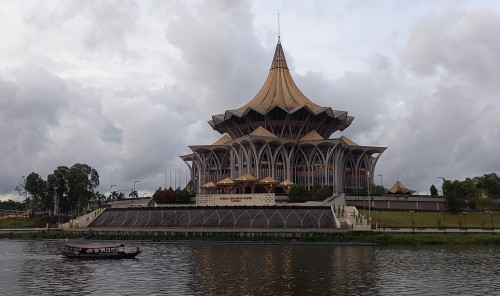CHINA has long been known for its culture of hard work. But younger generations in the country seem to have a more complicated relationship with this concept, particularly at a time when many of them have an outlook of uncertainty on their employment future. And one way they're dealing with the stresses the work world imposes – whether in long-term employment or not – is by taking gap days.
This term makes reference to the well-known concept of the "gap year." A "gap year" describes a break in academia, when young people take time out from their studies to go abroad, carry out a humanitarian mission or devote themselves to personal projects. It generally lasts between one term and one year, depending on the plans – and finances – of each individual.
But in an economically depressed China, where youth unemployment figures are so worrying that the authorities have stopped publishing them, the under-30s can't afford to take such a long break. That's why many of them are opting for "gap days."
These breaks lasting a few hours allow them to step back from a daily routine they find oppressive. "When work pressure gets intense, I book a hotel room near my home, spend time alone, watch shows, order fast food, drink bubble tea, and then quickly fall asleep once I'm full. When I wake up on Monday and put on makeup for work, I feel like I'm back to being a human being again," a devotee of these mini breaks told the South Morning China Post.
And it's not a rare phenomenon. Many young Chinese employees rent hotel rooms by the day to make the most of their "gap day." The hotel aspect is key for many as they have returned to live with their parents, unable to find or afford a place of their own. Taking a gap day away from home appears to be an important trend for them to decompress from the hectic pace of life as well as pressures their parents may put on them.
An ode to doing nothing
Financial insecurity, a rise in unstable and precarious work, soaring property prices and incessant pressure to marry and start a family are weighing heavily on the younger generations in China. Although they are generally better educated and wealthier than their elders, they feel far less well off than the previous generation, who benefitted from the country's dynamic of economic growth. The younger generation, who have just entered the workforce, aspire to a slower, more relaxed lifestyle, far removed from the culture of "996" workweeks (working from 9am to 9pm, six days a week).
Like the "chillax" trend, "gap days" are one element in this profound rethinking of how they fit into the Chinese model. Indeed the idea of "chillaxing" in China encompasses a variety of activities and behaviours that could be described as embracing slow living and sensory experiences.. Taking a walk in the park, preparing a home-cooked meal, going fishing, enjoying a cup of tea... fans of "chillaxing" want to take the time to enjoy life's little pleasures, even if it means not conforming to authorities' expectations.
And the establishment takes a dim view of these calls to idleness. There are even attempts to restrict posts on social networks related to "tang ping," which could be translated as "lying flat." This trend consists of deliberately avoiding all forms of physical and moral exertion, in order to participate as little as possible in the capitalist system. More than just an internet fad, many young Chinese citizens see it as a veritable philosophy of life.
Despite censorship of some messages related to these ideas, the under-30s seem determined to make their demands heard. Whether it's by lying flat, adopting a more "chill" lifestyle or taking occasional sabbatical days. One idea that comes up frequently – enduring hardship ("chiku," in Chinese) for nothing, as they see their parents and grandparents having done. – ETX Daily Up, August 29, 2023










_and_lord_mayor_rajendran_posing_in_a_mock_up_lrt-Ian_pic.jpeg)










